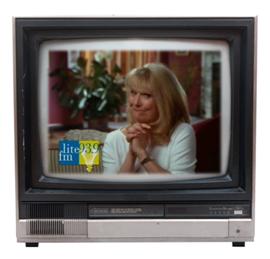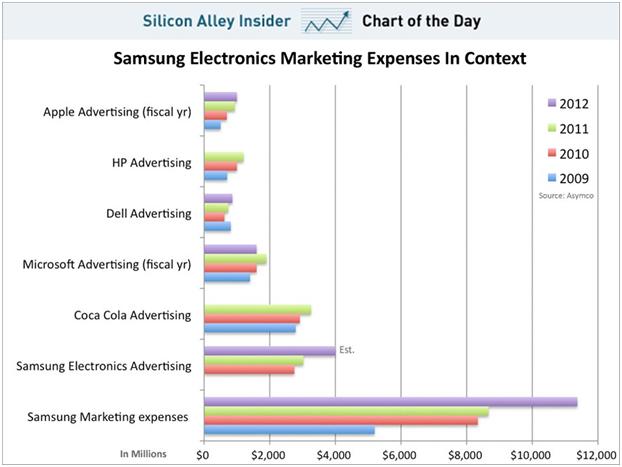Every business has its own lexicon. Radio is no different.
In the past decade or so, new and different words and expressions have been heard with great frequency.
Meter, cluster, streaming, voicetracking, cell phone only, value added, NTR, and spoken word are all part of our new vocabulary.
At the same time, other terms and phrases have become less prevalent, and in some cases, virtually extinct.
These include smooth jazz, callout, programming stunt, diary, landline, phone scam, and…
… marketing.
There was a time in radio when its best brands were supported with extensive marketing campaigns. Stations advertised on television, often throughout the year, and it was not uncommon for a half dozen stations in the market to be adorned on billboards and bus sides all over town.
 Some stations became known for their campaigns. KQ’s bus sides and back were part of their ubiquitous formula of visibility. The ABC-FM stations were famous for their TV commercials that showcased their rock music. KLOS gave away Porsches. KRTH had their $1,000 and a trip to Hawaii every weekday.
Some stations became known for their campaigns. KQ’s bus sides and back were part of their ubiquitous formula of visibility. The ABC-FM stations were famous for their TV commercials that showcased their rock music. KLOS gave away Porsches. KRTH had their $1,000 and a trip to Hawaii every weekday.
When you wanted to launch a new station, there was really only one way to gain awareness, and that was to market it. In some cases, heavily.
Guys like Pierre Bouvard talked about concepts like OES – Optimum Effective Scheduling – that suggested compressing a TV buy from 12 moderate weeks to 4 intensely heavy ones.
Filmhouse flourished as did several other TV production houses, each trying to outdo each other with clever commercials. Sometimes, a campaign caught on and had a shelf life for years. Chuck Blore’s “Remarkable Mouth” fell into this category, but there were dozens of other clever commercials, often utilizing famous celebrities from Teri Garr to Janine Turner. Or “The Birthday Game,” a book promotion that often moved the needle for the stations that could afford it.
There’s a lot to be said for heavy marketing – when you’ve got a great product. As the Silicon Alley Insider pointed out in a recent chart, Samsung is going all out in the marketing department to differentiate its brands from Apple iPhones.
As you can see from the chart, they are outspending everyone in the space – including Coca Cola – in traditional advertising, event marketing, etc.
What’s SAI’s take? They say, it’s “not a bad price to pay, if it means you get to become the world’s biggest smartphone company.”
And that’s one of the points behind marketing campaigns. When everything’s right, great marketing can strengthen brands, create awareness, point out the differences, and even help the sales department. That’s especially the case in radio, where local advertisers see the same marketing that consumers do.
That’s why even in situations where stations haven’t marketed in years, it’s incumbent on those of us on the product side to continue to ask for marketing, and to make the case that the brand would be better off with some outside advertising firepower.
The question, “What’s the ROI on that advertising campaign?” is always an impossible one to answer. And it’s often an excuse for management and ownership to simply say no.
Admittedly, there was probably a time when it seemed like everyone in radio marketed. It was what all stations did, and some of it wasn’t very strategic, very good, or very smart. I think that Mel Karmazin may have been the one to call bullshit on the act of indiscriminate ad spending by his Infinity stations.
But in these times, when a programmer or consultant even mentions the wisdom of marketing, it is often met with raised eyebrows or even laughs. And that may be a worse reaction than actually spending money on marketing that may not lead to a great book.
When we stop asking for marketing, you know we have problems.
- What To Do If Your Radio Station Goes Through A Midlife Crisis - April 25, 2025
- A 2020 Lesson?It Could All Be Gone In A Flash - April 24, 2025
- How AI Can Give Radio Personalities More…PERSONALITY - April 23, 2025





Memories, like the corners of my mind. WLIT Chicago under the ownership of Viacom, when marketing was integral part of our success. Teri Garr and the many trips to work with her at Filmhouse were a regular part of the stations success formula. Thanks for the reminder of how it used to be.
Thanks for that, Mark. Sadly, however, Barbra is now going to be in my head ALL DAY! Appreciate the comment and you reading our blog.
There is a certain irony to a business that makes its living telling people that they need to market their brands and doesn’t do it themselves.
During my first radio sales job, a prospect questioned whether my station was trying to hype its ratings with a large TV campaign and questioned the wisdom of buying ads on it. I answered – you should question buying ads from any station that DOESN’T advertise and closed with “hey – if we don’t believe our own bullshit, how can we ask you to?”
Still applies IMO.
Bob, I have already heard from others with the same sentiment. And thanks for that great comeback line.
As mentioned above, radio AE’s are out in their markets every single day telling potential clients that advertising/marketing are requirements for success. And yet the radio industry doesn’t take its own advice. Disappointing. Thanks for the overview, Fred.
Mike, thanks for giving us the station perspective about those mixed messages. Appreciate you taking the time.
Good write up Fred….the issue (and comparison to other businesses) changes because of our measurement system. Anyone from 16 to 60 can buy a product, marketed correctly. Sadly, radio is stuck searching for the “693 meters” and who the hell knows where they are. I know..I did a LARGE TV campaign this fall, with accompanying promoted FB posts, google ad suites and HELL..we even advertised ON a MAJOR internet radio company (yes, that one)
Didn’t move the needle on bit. There is no “cause and effect” with meters and until that changes…no major marketing will happen again for radio.
Dave, thanks for the “real life” story. Marketing – under the best conditions – can build brands over the long haul or move the needle in the next quarter. But I share your disappointment about not seeing that needle move. Appreciate you chiming in.
Fred:
Great thoughts, as always. I fear that folks like you and Mark and I are part of a shrinking number of folks who remember just how well marketing works for radio stations when–as you so aptly point out–the product is good.
Always strikes me that radio obviously still believes in the power of outside marketing–or they wouldn’t be selling air time, right? Some folks just have a funny habit of not visibly putting their money where their mouth is these days. We’ve been talking to people about the power of visibly marketing to the “second audience” of advertisers and prospects for at least 25 years. For the first 20 or so, radio seemed to believe in it. Things change.
This isn’t about whether someone works with Film House (though I always hope they will), it’s about expending the effort to elevate radio back up to a place of prominence and, dare I say ‘dominance,’ in the mind of prospects–both listeners and advertisers.
Wayne, for years, you guys were the go-to shop for TV marketing, and I know there are scores of radio people who appreciate what Film House did for radio. Thanks for that valuable perspective, and best to Kurt and the staff.
Fred – I remember as a Program Director in Baltimore asking my Market Mgr. why it’s so important for our clients market their brands on my (then) radio station but as for us – it wasn’t necessary to market our brand.
I said, “Isn’t that um, hypocrisy?” I’m one of many who watched my station tank after the marketing stopped. I gave it a good fight – but I just couldn’t compete without marketing.
Yup, always seemed like a contradiction to me, too. You were programming a smooth jazz station, and I think most would agree that’s a format that requires that outside reinforcement. Thanks, Lori.